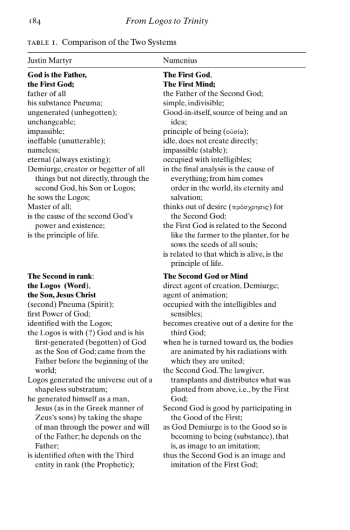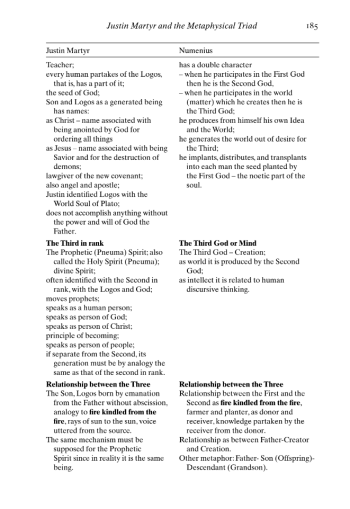tigger 2
Well-Known Member
...............................................Is that supposed to make sense?
Isaiah 9:6
6 For unto us a Child is born, Unto us a Son is given; And the government will be upon His shoulder. And His name will be called Wonderful, Counselor, Mighty God, Everlasting Father, Prince of Peace.
One way competent Bible scholars have interpreted the meaning of this name is with the understanding that it (as with many, if not most, of the other Israelites' personal names) does not apply directly to the Messiah (as we have already seen with "Elijah," "Abijah," etc.) but is, instead, a statement praising the Father, Jehovah God.
Personal names in the ancient Hebrew and Greek are often somewhat cryptic to us today. The English Bible translator must fill in the missing minor words (especially in names composed of two or more Hebrew words) such as "my," "is," "of," etc. in whatever way he thinks best in order to make sense for us today in English.
For instance, two of the best Bible concordances (Young's and Strong's) and a popular trinitarian Bible dictionary (Today's Dictionary of the Bible) differ greatly on the exact meaning of many Biblical personal names because of those "minor" words which must be added to bring out the intended meaning.
Strong's Exhaustive Concordance, for example, says the name "Elimelech" (which is literally just "God King") means "God of (the) King." Young's Analytical Concordance says it means "God is King." Today's Dictionary of the Bible says it means " God his king" - p. 206, Bethany House Publ., 1982. And an online meaning is given as “My God is the King.” - http://www.kveller.com/jewish_names/display.php?n=Elimelech&k=840
And, “God is my King.” - http://www.jhom.com/calendar/sivan/symbolism.htm .
I haven’t found any scholar/translator who says the name of Elimelech should be translated with its literal meaning of “God King.”
Those missing minor words that the translator must supply at his own discretion can often make a vital difference! - For example, the footnote for Gen. 17:5 in The NIV Study Bible: The name 'Abram' "means `Exalted Father,' probably in reference to God (i.e., `[God is] Exalted Father')."- Brackets in original.
This is why another name the Messiah is to be called by at Jer. 23:6 is rendered, `The LORD [YHWH] is Our Righteousness' in the following Bibles: RSV; NRSV; NEB; NJB; JPS (Margolis, ed.); Tanakh; Byington; AT; and ASV (footnote). Of course other translations render it more literally by calling the Messiah "The LORD [YHWH] Our Righteousness" to help support a `Jesus is God' doctrine. Some of these (such as the NASB) actually render the very same name at Jer. 33:16 as "The LORD [or Jehovah] is Our Righteousness"! - [bracketed information is mine].
(Unfortunately for "Jesus is Jehovah" advocates, the very same name given to the Messiah at Jer. 23:16 is given to a city at Jer. 33:16.)
But perhaps most instructive of all is the name given to the prophet’s child in Isaiah 8:3 shortly before his giving the name found in Is. 9:6.
Is. 8:3
Maher-shalal-hash-baz: Literally, “spoil speeds prey hastes” or “swift booty speedy prey.” Translated by various Bible scholars as: “In making speed to the spoil he hasteneth the prey” - - “swift [is] booty, speedy [is] prey” - - “the spoil speeded, the prey hasteth” - - “Speeding for spoil, hastening for plunder” - - “There will soon be looting and stealing”- - “Speeding is the spoil, Hastening is the prey” - - “The Looting Will Come Quickly; the Prey Will Be Easy” - - “Take sway the spoils with speed, quickly take the prey” - - “Swift is the booty, speedy is the prey” - - “Swift the Spoils of War and Speedy Comes the Attacker” - - “Make haste to plunder! Hurry to the spoil!” - - “Make haste to the spoil; fall upon the prey.”
And John Gill wrote:
“‘hasten to seize the prey, and to take away the spoil.’ Some translate it, ‘in hastening the prey, the spoiler hastens’; perhaps it may be better rendered, ‘hasten to the spoil, hasten to the prey.’”
Therefore, the personal name at Is. 9:6 has been honestly translated as:
"And his name is called: Wonderful in counsel is God the Mighty, the everlasting Father, the Ruler of peace" - The Holy Scriptures, JPS Version (Margolis, ed.) to show that it is intended to praise the God of the Messiah who performs great things through the Messiah.
‘For unto us a child is born, unto us a son is given: and the government shall be upon his shoulder: and his name shall be called, ‘Wonderful, Counselor [IS] The mighty God, The everlasting Father, The Prince of Peace.’ The two letter word ‘is,’ is usually not stated in Hebrew. Rather, the ‘is’ is understood.” - https://edward-t-babinski.blogspot.com/2016/04/prophecy-about-jesus-mighty-god.html
The Leeser Bible also translates it:
“Wonderful, counsellor of the mighty God, of the everlasting Father, the prince of peace”
Also, An American Translation (by trinitarians Smith and Goodspeed) says:
"Wonderful counselor is God almighty, Father forever, Prince of peace."
From the Is. 9:6 footnote in the trinity-supporting NET Bible:
".... some have suggested that one to three of the titles that follow ['called'] refer to God, not the king. For example, the traditional punctuation of the Hebrew text suggests the translation, 'and the Extraordinary Strategist, the Mighty God calls his name, "Everlasting Father, Prince of Peace."'"
And,
‘Wonderful in counsel is God the mighty, the Everlasting Father, the Ruler of Peace’ (Hertz 1968).
Of course it could also be honestly translated: "Wonderful Counselor and Mighty God is the Eternal Father of the Prince of Peace."
And the Tanakh by the JPS, 1985, translates it:
[a]"The Mighty God is planning grace;
The Eternal Father [is] a peaceable ruler."
This latter translation seems particularly appropriate since it is in the form of a parallelism. Not only was the previous symbolic personal name introduced by Isaiah at Is. 8:1 a parallelism ("Maher-Shalal-Hash-Baz" means [a]"quick to the plunder; swift to the spoil" - NIV footnote) but the very introduction to this Messianic name at Is. 9:6 is itself a parallelism: [a]"For unto us a child is born; unto us a son is given." It would, therefore, be appropriate to find that this name, too, was in the form of a parallelism as translated by the Tanakh above.
So it is clear, even to a number of trinitarian scholars, that Is. 9:6 does not imply that Jesus is Jehovah God.
Last edited:



